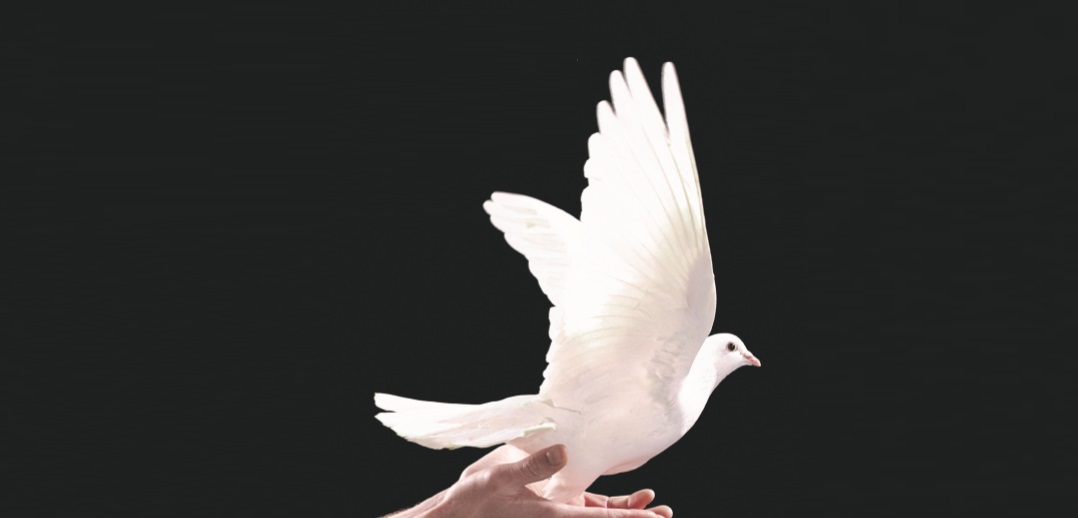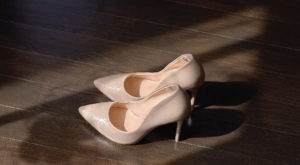Raising Ushy

“I think we’re going to tell him we’re ending it, not her. Then his image is intact, his self-respect is where it should be. He’ll get over it quickly, I’ll have a date set up for him by this Motzaei Shabbos.”

“N
ot much left unsaid in that house,” mused Heshy as he hung up the phone with Brachie Bauer. This was a fairly easy shidduch, an open-and-shut-case, he liked to call it, and it would be number 78 for the busy shadchan: Ushy Bauer and Aviva Sandberger neatly penciled in on the large white poster he kept in the basement, a running list of his successes.
For the Bauers, this was their first child in shidduchim; every detail was new and fascinating. From the moment Ushy had disembarked at Kennedy on Rosh Chodesh Nisan (That’s our Ushy, Brachie had said proudly, he refused to come home before Rosh Chodesh, even though the Goodman boy is already home a week), Brachie had been crowing about her son, her metzuyan, her baal middos, product of the best yeshivos (he went to the real Brisk!).
The perfect boy, and the shadchan hadn’t wasted any time. Brachie needed three days to make him over, but as soon as Ushy was ready, Heshy had him walking up the impressive front steps of the Sandberger home.
Aviva Sandberger was the girl of Brachie Bauer’s dreams — not life-of-the-party but not a wallflower either, dresses well but still tzniyusdig, assertive but flexible, intelligent but not brainy, and of course, the ever-popular frum but normal. Sure, she needed reassurance — the girl was 21 — but Heshy’s assertion that “21 is the new 18” seemed to calm her.
After just one date, Heshy flashed a thumbs-up to his wife Hindy. “This one will go all the way,” he said confidently. Things progressed; from Diet Coke in the lounge, moving on to desserts, even bowling and Build-A-Bear (What should we call it? There was a long silence, and then Ushy suggested “Bear?”).
Four weeks in, Brachie Bauer started to push the shadchan about a vort. (I think the Sandbergers are our sort of people, they seem to be, and things don’t just happen, they need to be planned. Maybe I should just pick up a phone and call Sari Sandberger directly, just so we can coordinate? Heshy said he didn’t know about that, that he thought she should wait a bit. The girl needed more time.)
They went out again, and then again. Heshy was still confident, but he took the precaution of calling the Sandberger girl and telling her that too much time isn’t always a good thing.
She agreed, she said. After the next date she said no to the shidduch. It was over.
***
It was nine fifteen in the morning when Heshy called Mrs. Bauer and told her that Aviva Sandberger had said no, that this happened sometimes, and — in the same sentence — that Elman from the carpets had an amazing daughter, she should look into it.
Brachie Bauer hung up and called her sister, sobbing. She told her sister that everyone knew that Mrs. Sandberger’s parents were misers and who did they think they were anyhow? Then she switched to bitachon mode, sermonizing about how Hashem makes shidduchim and we’re just along for the ride. Then she switched gears again. This was not what she needed, not at all, not when she had ordered a new suit for her husband and her mother was in bed with pneumonia.
Then she called Chaim home from the office — yes, it’s an emergency — and put a cold washcloth over her eyes to hide the fact that she’d been crying, but then let it slip off so he could see she’d been crying.
***
Chaim and Brachie had started their parenting career in the early 1990s, when low self-esteem was the cause of all ills, from unruly behavior to poor driving habits to smoking. “There is no way that we can tell him she said no.” Brachie was adamant. “It will destroy him, poor boy.”
Chaim nodded, eager to get back to the office. “Yes, and this his first shidduch experience, it can scar him. He’ll start to see himself the way she sees him, and it can really affect him negatively.”
Brachie loved the scar thing. “Absolutely, Chaim, this whole thing can really cause him to scar, and we need to step in here, as parents.”
Chaim stole a glance at the small digital clock on the oven. He could still make it back to the office for his eleven o’clock. “What do you suggest we do? We need to tell him something!”
“I think,” Brachie looked at him craftily, “I think we’re going to tell him we’re ending it, not her. Then his image is intact, his self-respect is where it should be. He’ll get over it quickly, I’ll have a date set up for him by this Motzaei Shabbos.”
“Are you sure?” Chaim was doubtful, but he needed to get back. “Maybe think about it? Speak to a rav first? I don’t know, Brachie … ” He slid into his jacket and walked towards the door. “Hatzlachah, have a great day either way.”
***
Heshy wasn’t sure why Mrs. Bauer was so anxious to know if he’d told Ushy directly. When he said he hadn’t, she asked him to let her handle it. “Sure,” he said, “he’ll be upset and it will be good for him to have you there, to comfort him.”
She explained that she was going to tell him what she felt was best for him to hear. “I’ll tell him it’s over, but that it was our decision, me and my husband.”
Heshy disagreed, but she said something about daas Torah and her husband and a mother’s instincts and hung up.
***
“Ma? What does that mean?”
“It’s a decision your father and I took. We feel we know what’s best for you.”
“Of course, Mommy, it’s just that—”
“Trust us, sheifeleh, we know what’s best. There are many other girls, Aviva Sandbergers are a dime a dozen.”
At the mention of her name Ushy felt a stab of pain.
“But why, Ma? Why? Everything was so right.”
Brachie was annoyed that Chaim had left her to handle this alone. Poor Ushy … he would never be able to deal with the hurt.
“We heard things … things from her background that scared us off, that told us to stay away.”
“Ma?” What sort of things could they have heard? He thought he knew Aviva pretty well, and found it hard to wrap his mind around any sort of dark, secretive past.
“Ushy, sweetie, listen to me. You are a very smart boy, right? You love to learn, and you even enjoyed general studies in high school, math and science and all that. Remember you asked for a telescope for Chanukah? I mean, who does that?”
“Huh?” What did that have to do with Aviva?
“Ushy, without going into lashon hara, suffice it to say that Aviva Sandberger is not a very smart girl, not at all. We’re talking a girl who failed her way through school, who needed extra help — and lots of it — from first grade and on. She’s not a wife for you.”
Ushy was a respectful boy, but he couldn’t restrain himself. “Ma, I met her nine times, she’s plenty smart … smart enough for me, anyway.”
“Ushy, you never saw her report cards … we have all sorts of information, she’s not a partner for you, trust us.” She said the word again, like a bad actor playing a spy and trying to sound ominous. “In-for-ma-tion.”
***
The Ketzos was shver, there was no doubt. Chezky Stockman stroked his beard, and looked up at the two bochurim standing in front of him. “Okay, I have a shtickel plan here.”
As the rosh chaburah spoke, more and bochurim gathered around, leaning in to hear his pshat. Chezky finished speaking; he noticed Ushy Bauer off to the corner, still in his seat. It wasn’t like him not to take part in the discussion, Chezky thought.
Ushy was slumped forward, trying valiantly to learn, but the rosh chaburah knew bochurim and he knew the signs; it could only be one thing. It was only later, on the way out of the seder, that Chezky had a chance to ask him.
“Ushy, you don’t look so hot. Everything okay?”
Ushy tried a smile. “You know, the usual.” He looked like he was about to cry.
The rosh chaburah slid the folded jacket over on the bench and sat down next to Ushy.
“Talk to me.”
Ushy — quiet, refined Ushy Bauer — allowed the words to come out in a rush, like a fire hydrant uncapped. Nine weeks ago he’d been in Eretz Yisrael, his greatest worry whether to buy schnitzel or shawarma for supper. “Now,” he said, “I feel like my whole life is spinning away from me, that I’m losing something good, but I’m powerless to stop it.”
The rosh chaburah let the boy talk. He heard about Aviva’s solid hashkafos, gentle warmth, and good humor — how she’d laughed out loud when the steering wheel locked and they had to call Chaveirim. The boy was clearly in pain and Chezky wasn’t sure what else he could do, except listen.
“And the worst part is that she is a smart girl, so it doesn’t even make sense.”
***
Ushy lay on his bed during bein hasdorim, one foot on the floor. There was a half-eaten bag of potato chips next to him, crumbs forming a trail across his pillow, a little ball of laundry at the foot of his bed. A can of soda was on its side, the liquid forming a hard, dry map on the dresser.
This, proclaimed Yossi Hartman, who’d been roommates with Ushy since they were 17, was so not the Ushy he knew.
“Ush,” Yossi finally said, “you need to do something, either move on or speak to your parents again. This is crazy.”
Ushy had spoken to his parents again — and again, and again. It seemed that as much as he pushed, did their determination grow. He’d gone home for Shabbos and had confronted his father in private, away from his mother. “Please, Ta, give it a chance.” His usually docile father looked at him, eyes blazing. “Let it rest Ushy, okay? It’s over. Forget it. You need a girl with sechel, someone who can help you, not hinder you.”
“Ta, you can’t make an assumption like that from a few report cards!”
“It wasn’t just the report cards, Ushy, we did all sorts of investigations. All sorts.”
Mommy walked in then and glared at her husband, as if he hadn’t been persuasive enough. “Please Ushy, I had a long conversation with the rebbetzin, the principal of her high school … she knows this girl through and through, and she really opened my eyes.”
“Which rebbetzin?” Ushy asked abruptly.
“It’s irrelevant,” said Mommy. But then, as if to underscore her credibility, she turned around. “It was Rebbetzin Markowitz, if you must know.”
***
After seder on Tuesday, Ushy was waiting for the rosh chaburah. “You have a minute?”
Chezky hesitated. He had two carpools to do. “You know what, come with me in the car.”
Ushy climbed in to the old Caravan. As Ushy began to speak, Chezky respectfully turned down the volume on the tape — keeping it on just loud enough to entertain the two toddlers in the back. Ushy marveled at the fact that the children seemed content to listen to a recorded shiur on Tchilaso b’pshia v’sofo b’oness.
Chezky listened closely to Ushy’s plan.
“Interesting,” he finally said, “let me think about it.”
He cast a sidelong glance at his passenger. Who knew Ushy Bauer had it in him?
***
It was eight o’clock at night when Chezky parked in Kensington. He hadn’t called to say he was coming, and he davened for siyata d’Shmaya as he walked up the rickety gray stairs. He tried to look more confident then he felt; he was surprised at how calm Ushy seemed. Ushy had persisted with this plan, asking Chezky once, twice, three times and then finally threatening to go by himself if Chezky wouldn’t join him.
The door was opened by a little red-haired boy holding a broken flashlight. “Is Mrs. Markowitz home?”
The boy seemed confused and gently closed the door. There was a moment of silence and then they heard an exasperated “Yudi!” from inside as the door swung open yet again.
“Hi, sorry about that,” the woman — could she be the rebbetzin? — greeted them.
“We’re looking for Rebbetzin Markowitz,” Chezky said.
She looked from one to the other and then shrugged. “Okay, come on in. Excuse the mess.…”
***
Chezky Stockman sat in the kitchen, eating a late supper — very late, well after midnight. He was telling his wide-eyed wife about his little cloak-and-dagger mission to Brooklyn. Every time he stopped talking to take a bite she grew frustrated, “No, tell me more.”
“So the rebbetzin listens to the story, doesn’t talk much, but I can see she’s shocked, like she doesn’t get it. She asks why we came, and Ushy, who is usually so quiet, says that since he knows Aviva — that’s the girl — is very smart and the whole thing is a mistake, he wants the rebbetzin to call his parents and say it was a misunderstanding, that she gave information on the wrong girl. You had to hear the way he spoke, Chan — with such force, he’s like a whole different guy when it comes to this sugya. He wants her to step in assure his parents that this thing is just a big mix-up. He had it all planned.
“Then the rebbetzin asks him how he knows that the girl is smart, and he pours out a whole slew of stories and things she’s said. The rebbetzin is smiling, like it’s hilarious, the whole time. Then—” Chezky stopped to chew on a pickle, it needed time — “she asked me to call her tomorrow.”
***
Chezky stepped out of first seder — something he rarely did — to call the rebbetzin. She answered on the first ring, as if in anticipation.
“Rabbi Stockman, thank you so much for calling. I just wanted to tell you something is very wrong here. The parents never called me. Aviva Sandberger is a smart, smart girl. Her marks were fine, and more importantly, she has seichel, the kind of girl her friends go to for advice. I think you need to clear this up.”
Chezky sat down on a low stone wall and closed his eyes. Whoa!!! He had three possible explanations in the Rashba and two solid mehalchim in the machlokes Rambam and Ra’avad, but this was beyond him.
***
Chezky slipped out of seder for the second time that morning and made his way across the campus to the small beis medrash where Heshy Fixler sat. As expected, the shadchan was surrounded by a group of bochurim, but he stood in respect when Chezky approached.
Chezky indicated he would appreciate privacy, and the two men stepped into the hall.
“What happened with Ushy Bauer and the girl he was going out with?”
Heshy was poker-faced, as it waiting for an explanation, so the rosh chaburah hastily filled him in. “He’s in my chaburah, and he’s kind of heartbroken … we’re trying to figure this out together.’
Heshy made a face. “She said no, but his mother played some game with him.” He paused for effect. “She was worried about hurting him.”
Chezky shook his head in disbelief. “Thanks so much, Heshy.”
***
He knew she worked for Reliable Insurance. How hard could it be to find her?
“Reliable. Good afternoon?”
“Hello, can I speak with Aviva Sandberger, please.” Chezky gripped the phone.
“Hello?”
“Hi, Miss Sandberger, I’m sorry to bother you. My name is Chezky Stockman.”
There was a confused silence. Then, “Okay.”
“I’m a rosh chaburah in Lakewood and a wonderful young man, Ushy Bauer, is in my chaburah. We are quite close … anyhow, he told me about his experience, you know, having met you and all that.”
“Calm down,” an attentive Chani Stockman instructed her husband in a whisper.
“Okay,” the girl sounded bewildered.
“He was really excited about the way things were going … can I ask what was bothering you? I know you don’t know me, but I feel close enough to him to try my best.”
“Ummm … well, I guess it just wasn’t bashert for me.”
“Can I ask why?” Chezky shocked himself with his temerity.
There was a long pause. “Can we speak after work? It’s pretty busy here.”
That evening, cell phone pressed hard against his ear, Chezky paced up and down in the parking lot near his house.
“He was pleasant enough, and a real ben Torah, for sure, just he seemed to be missing … I don’t know … maybe it was character, you know? Like he had no backbone. Everything is just fine with him, he has no positions or opinions on anything real … I just didn’t get the sense that he could lead me, take charge, you know?”
A little boy on a bike swung sharply to his right as Chezky walked directly into his path. The boy muttered about the near-miss, but Chezky was oblivious.
“You think Ushy Bauer has no backbone?”
“I don’t know,’ the girl was more animated now than she’d been earlier, when he’d caught her off-guard. “Everything always seemed alright with him; the air conditioning was never too high or too low, all music is nice enough, he’s fine to sit in traffic even when he can take side streets, he thinks if you have a shtender, Gemara, and a good chavrusa, it makes no difference if you live in Eretz Yisrael or America. I wanted so badly to find something he did care about, but it just never happened … it was frustrating.”
“Well I did.” said Chezky evenly.
“You did what?” she asked.
“I found something he cares about … and when he cares about something, you should see what happens to him, how passionate he gets.”
He had her now, so he kept going, the rosh chaburah delivering a private chaburah.
“Miss Sandberger. I’ve seen Ushy argue about a Tosafos and you can’t budge him — he’s a rock — there’s no pushing him off, nothing relaxed about him. I’ve seen him fighting to understand the nuances of a Reb Chaim and he’s desperate, like a thirsty man in a desert — plenty of passion there.
“And, Miss Sandberger, I’ve seen him arguing for the girl he thinks is his bashert, the right one for him, and oy, does he care.”
“Look, I need to think about what you’re saying, about—”
Chezky Stockman wasn’t much of a speaker. He’d spoken at his brother’s sheva brachos and two minutes in, he decided to skip the rest and sit down. At Uncle Feitel’s levayah, he had forced himself, because there was no one else, but it had fallen flat.
This, however, was the speech of his life.
He broke in. “Listen, Miss Sandberger, let me tell you a little story.”
Chezky smiled blankly at the neighbor, and kept pacing, pacing, pacing.
He told her of the respectful, soft-spoken boy in his chaburah who went to war to make things right, refusing to be diverted, refusing to accept that something he knew to be true, wasn’t.
She listened.
When he got to the part about the senior Bauers’ foolish decision to protect their son, he spoke quickly.
“They told him they felt it unsuitable, and they were ending it. They said they didn’t think you were academic enough for him, that he needed a real intellectual … they thought they were being good parents.”
“Whatever,” she said. She clearly didn’t understand them. He couldn’t blame her.
“Then Ushy said you were more than smart, that he had gotten to know you, and that you were the one.”
Chezky paused before delivering his trump card.
“He was so sure you’re it, he went to visit Rebbetzin Markowitz and begged her to try to persuade his parents to let it continue.”
“Ohmigosh.” She was connecting the dots.
“He’s so determined to get this back on track. Can it be that he has more backbone than you think?”
She sighed, and Chezky felt bad for her.
“I know, it’s a lot to digest. Do you want to think about it? Maybe, just maybe, you can give him once more chance? He’s worked very hard to earn it.”
***
“It’s just a lchayim, not a real vort,” Chaim said as he parked. “I’m not sure why we had send flowers.”
“Please, Chaim, it’s been a long parshah, don’t make little issues.” They had been filled in on the story — Ushy’s campaign and its successful conclusion — and it had been hard for Brachie. Happy as she was for her son, she felt outmaneuvered, a bit irrelevant. Chaim was plain proud: He was happy that Brachie had unwittingly forced their son to show a different side, and that Aviva had gotten to see that Ushy.
Chaim, wearing his new suit after all, turned to Brachie as he rang the Sandbergers’ bell.
“Mazel tov, Brachie,’ he said, ‘I guess a double mazel tov, actually.”
She wasn’t one for subtlety. “Double?”
“Yeah, the shidduch of course, and another for the son you did such a fine job raising — maybe we can let him raise himself a bit, too.”
There was a last flurry of activity behind the closed door and they heard the new mechutanim coming to open up.
“Chaim,” Brachie hissed, “stand straight.”
(Originally featured in Calligraphy, Pesach 5773)
Oops! We could not locate your form.













